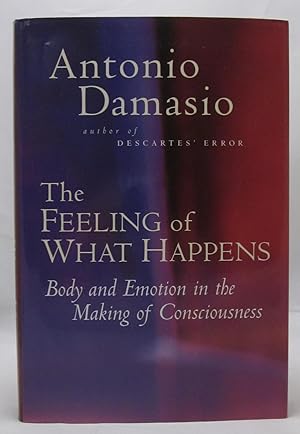A new theory of consciousness and the construction of identity focuses on the body's reaction to its world, postulating that a complex relationship between body, emotion, and mind is required to configure the self. 40,000 first printing. Tour.
As you read this, at some level you're aware that you're reading, thanks to a standard human feature commonly referred to as consciousness. What is it--a spiritual phenomenon, an evolutionary tool, a neurological side effect? The best scientists love to tackle big, meaningful questions like this and neuroscientist Antonio Damasio jumps right in with
The Feeling of What Happens, a poetic examination of interior life through lenses of research, medical cases, philosophical analysis and unashamed introspection. Damasio's perspective is, fortunately, becoming increasingly common in the scientific community; despite all the protestations of old-guard behaviourists, subjective consciousness is a plain fact to most of us and the demand for new methods of inquiry is finally being met.
These new methods are not without rigour, though. Damasio and his colleagues examine patients with disruptions and interruptions in consciousness and take deep insights from these tragic lives while offering greater comfort and meaning to the sufferers. His thesis, that our sense of self arises from our need to map relations between self and others, is firmly rooted in medical and evolutionary research but stands up well to self-examination. His examples from the weird world of neurology are unsettling yet deeply humanizing--real people with serious problems spring to life in the pages but they are never reduced to their deficits. The Feeling of What Happens captures the spirit of discovery as it plunges deeper than ever into the darkest waters yet. --Rob Lightner, Amazon.com
![]()

